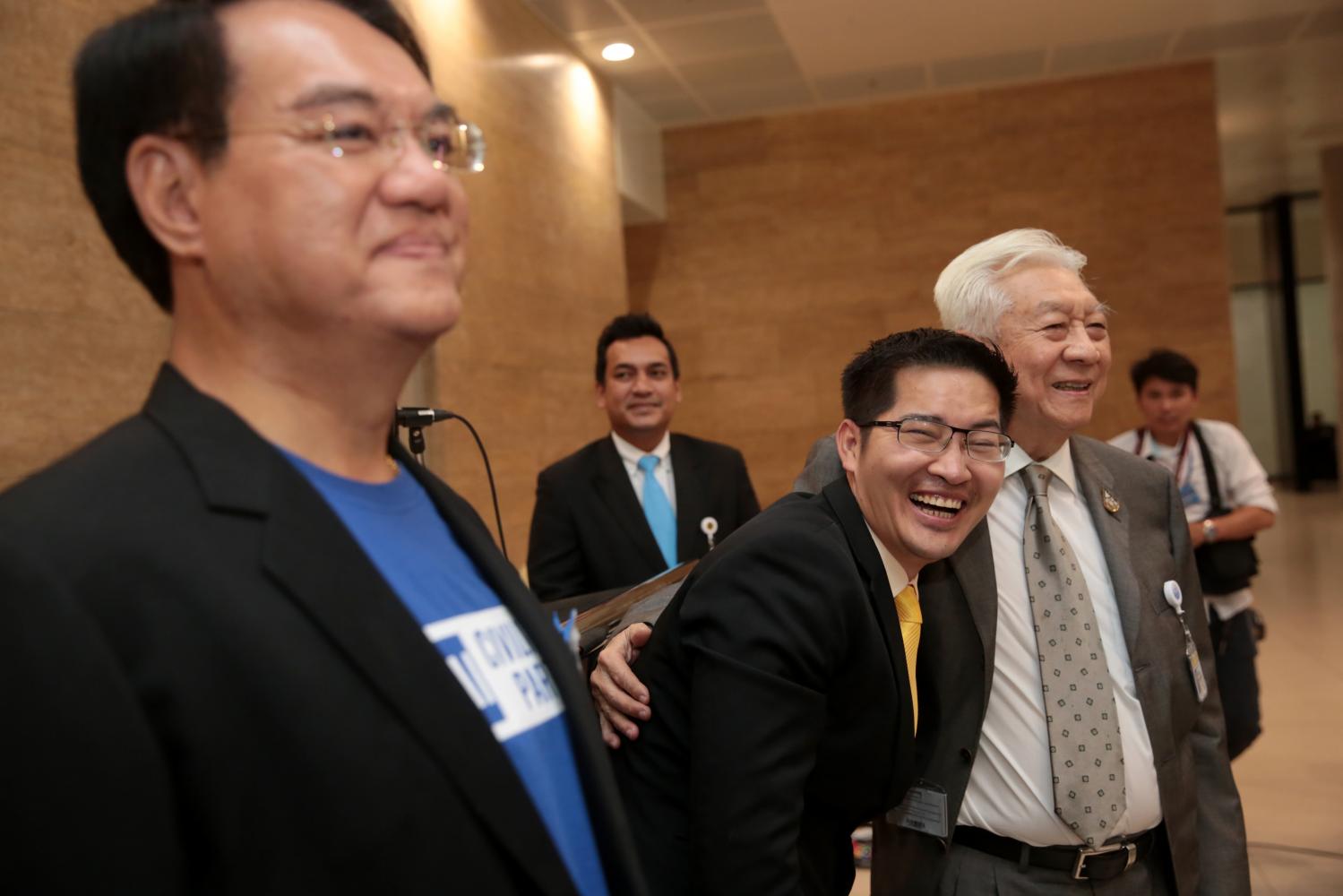
Vote buying in parliament is an ugly form of dirty politics which normally rears its head during a censure debate, especially on the last day, before a vote is to be taken.
It erodes representative democracy like rust in the steel. Yet it seems that we, I mean, both the politicians and the public, have accepted this shameful practice as a fait accompli.
The censure debate over a week ago is no exception although the vote buying and selling allegedly by the "Group 16" MPs also involved backstabbing.
Some of the MPs allegedly took a "banana" (cash and benefits) from both sides in exchange for their votes.
For those who are green to Thai politics, "Group 16" is a moniker for the group of renegade MPs from parties in the coalition government.
Led by veteran politician Pichet Sathirachawal, a member of the Palang Pracharath party (PPRP), most of the MPs are members of small and medium size parties.
Last month, prior to the most recent censure debate, MPs in this group were in the media spotlight, rubbing shoulders with Capt Thamanat Prompao, former secretary-general of PPRP who broke away recently to form the new party Setthakij Thai party (Thai Economic Party).
Capt Thamanat, former sidekick of deputy PM, Gen Prawit Wongsuwon, has not seen eye-to-eye with the prime minister, Gen Prayut Chan-o-cha, and seeks opportunities to undermine his former political party and leader.
Meanwhile, Mr Pichet accused Deputy Finance Minister Santi Promphat, also secretary-general of PPRP, of mishandling the bidding of a water pipeline concession in the Eastern Economic Corridor (EEC).
Since May, Mr Pichet has dined with Yuttapong Charasathien, a Pheu Thai Party MP, reportedly discussing information related to the water pipe concession in the EEC.
During the censure debate, Mr Yuttapong grilled Mr Santi on the water pipeline concession in the EEC.
That explains why Capt Thammanat fumed when he learned that some of the MPs, whom he thought were already in his pocket, had double-crossed him by voting in favour of Gen Prayut and ministers censured by the opposition.
Capt Thamanat hinted that some of these MPs had been on his payroll for quite some time and he didn't expect them to turn against him.
But the former deputy agriculture minister should have grasped the reality of Thai politics.
After seeing an online image of what purported to be a monthly payslip showing money being wired to the bank accounts of several Group 16 MPs, a member of the group dismissed it as a fake, but others kept their mouths shut.
Yet "cobras" or rebel MPs exist in several parties, including the PPRP, Democrat or even Pheu Thai parties, and they voted against their parties' resolutions.
For instance, six MPs of the Paknam faction of the PPRP voted against Interior Minister Anupong Paochinda and Labour Minister Suchart Chomklin. And two Democrat MPs voted against their party leader, Commerce Minister Jurin Laksanawisit.
When told about the Paknam faction's defiance, Gen Prayut seethed with rage, blurting out "how dare" they, as Mr Anupong is one of the three brothers in arms of the "P" family, which include Gen Prayut and Gen Prawit.
Yet as PPRP party leader, Gen Prawit has yet to take any action against the six rebels.
His soft approach towards this group was in sharp contrast to his treatment of the "Dao Ruek" faction, led by party-list MP Watanya Wong-opasee, who voted against Transport Minister Saksayam Chidchob in the last censure debate.
During a visit to Samut Prakan on July 25, Gen Prawit promised the Paknam faction that one of them will be given a cabinet seat if there is a cabinet reshuffle.
The six MPs of the Paknam faction are a sizeable number that Gen Prawit, in his capacity as PPRP leader, cannot afford to lose, particularly in light of the next election when the stakes are high, with the opposition Pheu Thai party's rising popularity, especially in the northeastern region, which has the highest number of constituency MPs.
Meanwhile, Mr Jurin, who received the lowest amount of confidence votes of all 11 ministers censured by the opposition, appears to be in hot water, with his leadership status shaken.
Besides the two rebel MPs who voted against him, the party is likely to face more defections in the future. The Group 16 MPs may have taken their "banana", but they have lost their bargaining power, with no more censure debates to flex their muscle.
No party with a modicum of intelligence will need any of them anyway due to their shifting loyalty to whoever offers them the highest bid -- unless they have the potential to win the election, which is wishful thinking.
With the number of party-list seats reduced from 150 to 100 in a two-ballot electoral system, most of them stand a slim chance of winning a party-list seat. But who cares about them anyway?
What about the vote buying in parliament, which is unlikely to go away easily if the next government has a slim House majority? At the very least, the Election Commission or the National Anti-Corruption Commission (NACC) should address the problem to put an end to this ugly practice, if they have the guts to do so.
Veera Prateepchaikul is former editor, Bangkok Post.







